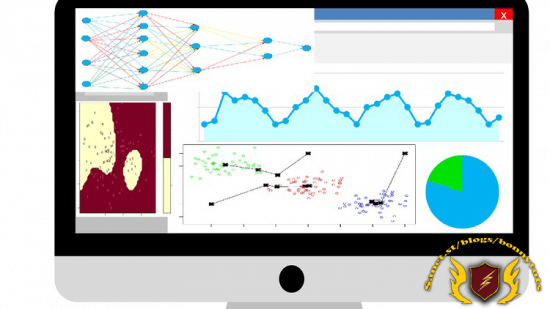
Published 10/2022
MP4 | Video: h264, 1280×720 | Audio: AAC, 44.1 KHz, 2 Ch
Genre: eLearning | Language: English | Duration: 61 lectures (9h 8m) | Size: 2.12 GB
Learn Data Science Methods and Techniques in R. Build Machine Learning Algorithms from Scratch. Gain Insight into Data
What you’ll learn
Data Science Concept
R Programming Basics
Machine Learning Basics
Predictive Model Building Basics
Basics of text analytics
Basics of Time Series and Forecasting
Requirements
An overview of data science and machine learning will be an added advantage, but not mandatory
Basic knowledge of programming will be an added advantage, but not mandatory
Description
In this course, we have provided the basic understanding of data science methods and techniques and machine learning, beginning with the basics of R programming. Having gone through this course, a new beginner, who has interest in data science and machine learning, will be able to sail through on their own. What it means is that students will be able to build the advanced knowledge based on what they learn here.
We will not only use the predefined functions in R and different packages, but we will also learn how to build machine learning algorithms from scratch defining our own functions.
In this course we will cover topics such as, R programming, introduction to data science and machine learning, understanding of data, preprocessing of data, cleansing of data and how to apply data science tools to preprocess and analyze data (structured as well as unstructured) and build predictive models, perform clustering, PCA, etc.
The machine learning topics would include, supervised learning and unsupervised learning. In supervised learning we will cover topics such as linear regression, logistics regression, time series and forecasting, text analytics (part of natural language processing), neural network, support vector machine, market basket analysis (association rules).
As part of unsupervised learning, we will go through clustering, such as hierarchical clustering and non-hierarchical clustering. We will focus on topics such as K-means, soft and hard clustering, similarity functions, agglomerative methods (bottom up), divisive methods (top-down). We will also cover topics such as principal component analysis (PCA), and how to use both in real life.
We will look at different examples of various topics. At the end, we will go through various lab sessions on each topic, using different datasets, with all the codes and operations.
Who this course is for
Beginners who have interest in learning about data science and machine learning
Basic understanding of how programming works and can grasp R programming will be an added advantage, but not mandatory
Password/解压密码www.tbtos.com
转载请注明:0daytown » Applied Data Science and Machine Learning in R for Beginners